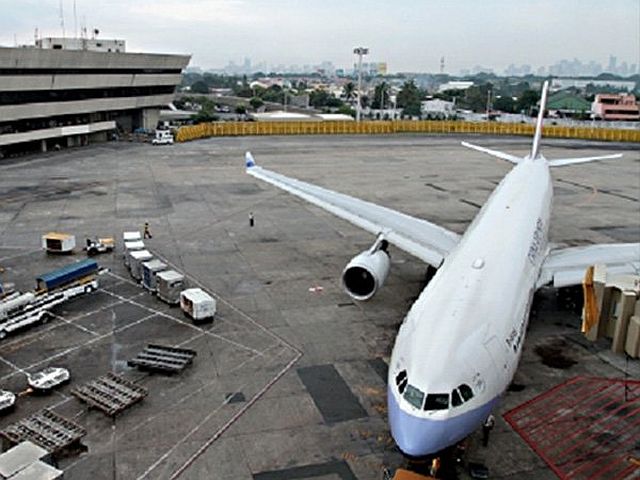Passengers should deplane if tarmac delay hits 2 hours

An aircraft sits at the tarmac of the Ninoy Aquino International Airport as it is readied for its next flight (INQURER FILE PHOTO)
CAB resolution is expected to be implemented in late September
MANILA — The government wants to cut long waiting times for passengers onboard aircraft parked on the tarmac — the subject of heavy criticism from flyers given the string of flight diversions in recent weeks.
The Civil Aeronautics Board (CAB) came out with a resolution requiring all domestic and international carriers to “immediately start deplaning procedures of passengers once tarmac delay hits two hours.” The resolution will be published on Wednesday (August 31), after which it will take effect in 15 days, according to the CAB.
Once in effect, domestic flights should be fully deplaned by the third hour. International flights would have more time, and would have to fully deplane by the fourth hour, the CAB said.
Transportation Secretary Arthur Tugade told reporters Tuesday the resolution followed a directive seeking to limit waiting times on the tarmac to address “passenger convenience.”
He said the CAB’s two-hour limit was tighter than the current international standard to begin deplaning after three hours of delay.
Passengers have complained of waiting multiple hours inside planes parked on the tarmac. The delays usually occurred when bad weather prompted the diversion of their flights from Manila’s Ninoy Aquino International Airport to Clark International Airport in Pampanga.
The CAB resolution also noted that carriers “should provide adequate food and potable water not later than two hours after delay.” Passengers should also be provided with a status update from the aircraft’s “pilot in charge” every 30 minutes starting from the first half hour of delay, the CAB noted.
“Air carriers should assign a point person or person of authority to monitor effects of delay, address passenger queries and provide passenger guidance on updates on status of delayed or cancelled flights,” the CAB said.
The CAB took note of cases when passengers could not be deplaned within the specific time frame. In these cases, airlines “shall have burden of proof and present adequate and reasonable evidence.”
The Department of Transportation acknowledged the priority of airlines to unload passengers at the original point of disembarkation and that there would be “extra logistical requirements for unplanned passenger unloading.”
“However, the DOTr finds it necessary to come out with standardized regulations for passenger convenience without sacrificing safety and security,” the department said.
Disclaimer: The comments uploaded on this site do not necessarily represent or reflect the views of management and owner of Cebudailynews. We reserve the right to exclude comments that we deem to be inconsistent with our editorial standards.
